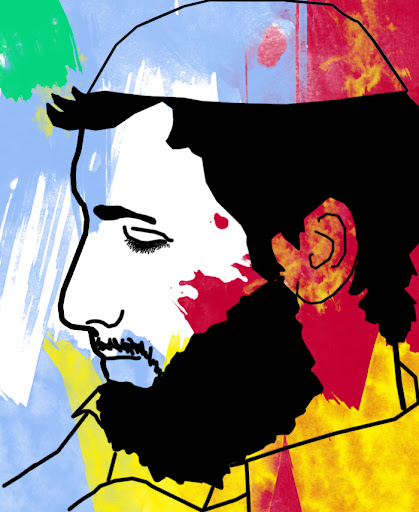 On a Sunday in Vilna a few months ago, the Chabad Rabbi in the city, Sholom Ber Krinsky and I visited the Jewish Cemetery in this ancient Jewish city to perform a tahara -- the ritual washing and cleansing of a deceased man or woman.
On a Sunday in Vilna a few months ago, the Chabad Rabbi in the city, Sholom Ber Krinsky and I visited the Jewish Cemetery in this ancient Jewish city to perform a tahara -- the ritual washing and cleansing of a deceased man or woman.
Boris (or Ber) was 90 years of age, when he died one day earlier. He did not live as a Jew, he married out of the faith so none of his children were Jewish, and there was no one to say kaddish for him. Yet shortly before his passing he asked to be buried as a Jew.
I've never done tahara before. I've also never seen a lifeless body.
I’ve been around death. Having spent the year in Eastern Europe, it is an unavoidable reality. I’ve visited at least half a million Jewish graves. But I’ve never seen death in its rawness.
Graves are places of silence and deep introspection. They have a unique atmosphere. Especially graves of hundreds of thousand innocent men, women and children killed merely because they were Jewish.
But standing in the presence of a dead person, undressing him and washing him, is a different experience all together.
We entered the side room of the mortuary and donned medical scrubs and plastic gloves. The body was cold, heavy, and stiff with rigor mortis. We worked in almost complete silence, only whispering when the need to speak arose.
My legs felt cold, my mind was dancing in a million places, only skimming over the facts at hand.
The body looked the same as that of any living person. Except for a slightly pale tint, it seemed as if he could wake at any moment. Yet we knew: The soul has left it, in time the body will return to the elements.
There was something very tender in it all: Washing the body, dressing it in clean white shrouds, placing it gently in its coffin. Care was taken not to turn it over on its back, so as not to embarrass the human form – made in the image of G-d.
He was moved into the coffin, and then brought to the waiting crowd.
We buried him, shoveling the soft, red Lithuanian dirt as it fell with a thump upon the casket. I tried for as long as I could, until the workers took over -- three blue eyed elderly gentiles.
The casket was completely covered. One of the members of the Vilna Chabad House said kaddish.
As we left, his progeny rushed forward to cover the grave with flowers and candles in an ancient Slavic right.
Shortly before his passing Boris asked to be buried as a Jew and his wish was fulfilled. He was interred in the same cemetery as the famed Gaon of Vilna and many other great Jews of our city, once known as “the Jerusalem of Lithuania.”
Picture of the Ger Tzedek's Ohel (as well as the Vilna Goan) -picture taken from my trip this past Chanuka.







4 comments:
Wow.
There is no greater Mitzvah then helping the dead, because they cannot physically help you in return. May you continue to be a shining example of what it means to be a Chossid! Michayil L'Chayil!!!
Thank you.
Kol hamivareich misbareich.
..i dont know what to say.good job motty
Amen!!! (Right back atchya!)
Post a Comment